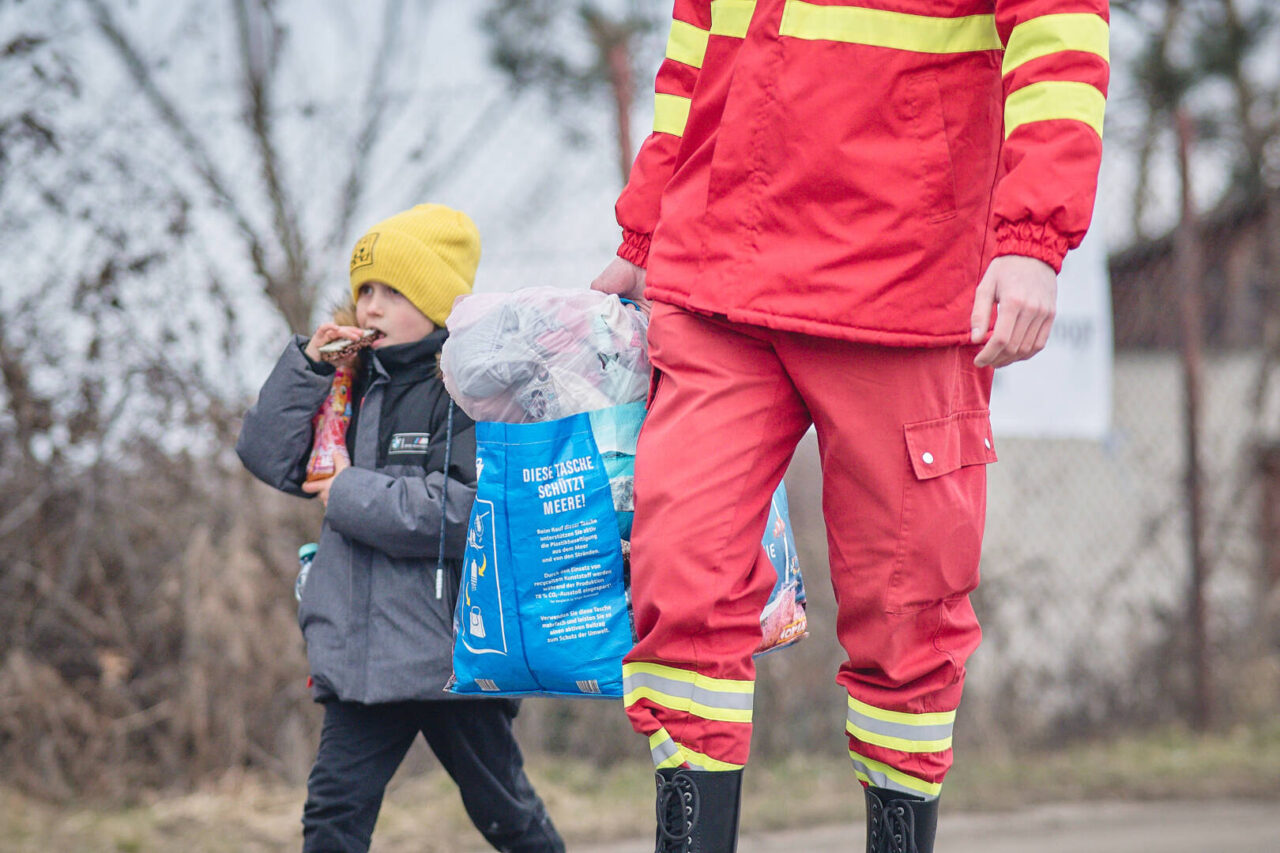Highlights
- Economic pressures, tourist season and cuts to refugee assistance drive new phase of displacement – with some refugees being forced back to Ukraine despite danger
- Half of displaced people in Ukraine unsure if they will stay in current city, World Vision figures show
- More insecure and threatening environment facing children, families and other refugees

BUCHAREST (July 25, 2022) —A new wave of Ukrainian families are searching for shelter and stability as assistance in some countries is scaled back and personal savings dry up, warns global humanitarian organization World Vision.
As the war enters its sixth month, a cloud of uncertainty also looms over accommodation for many people forced to leave their homes.
Interviews conducted by World Vision staff found 45% of displaced people in Ukraine didn’t know how long they would stay in the city where they were sheltering. The Rapid Needs Assessment revealed a quarter (24%) were paying rent, 37% were staying with host families and 25% had sought refuge in internal displacement centers such as schools and churches. More than half of parents cited a lack of work and income as their main concern, with a slight but worrying rise (3%) in households resorting to begging.
“This is not a static crisis, unlike most refugee crises where people generally relocate to large camps or are unable to return to their home country for years,” says Eleanor Monbiot, World Vision’s Middle East and Eastern Europe Regional Director.
“We are seeing a lot of movement and are now bracing for a large new wave of displacement due to a range of pressures. This means children are being uprooted yet again, interrupting their lives and any new support structures that have sprung up around them.
“While there has been overwhelming outpouring of support for people from Ukraine, we are now five months into this war and people who have fled are facing rising pressures and instability. Some short-term housing options, such as free accommodation in seaside resorts or with host families, are no longer tenable. Inside Ukraine there are 6.3 million people displaced, which has caused a huge housing crisis and inflated rental prices. What is emerging is a crisis upon a crisis – and it’s only just the beginning.”
These challenges add to the pressure on Ukrainian parents, who cite the mental health of their children as their biggest worry. The new World Vision report No Peace of Mind published this month also revealed the war in Ukraine has put 1.5 million children in danger of mental health issues including anxiety, depression and social impairment.
Monbiot said World Vision is transitioning from an emergency phase to addressing prolonged humanitarian needs including preparing for a rise in people needing support.
The summer tourist season has meant refugees are having to move on from free accommodation at seaside towns in Romania and Bulgaria, with anecdotal reports that many are moving to other towns, host countries or even back to Ukraine.
“People are also running out of money to pay for accommodation,” says Monbiot. “They are on the move again in search of affordable shelter – or going back home despite the dangers. Program partners in Moldova say some refugees have returned to Ukraine only to discover conditions there are worse, leading them to return to Moldova. Scores of people are also sheltering in university dorms and schools and are facing uncertainty when the school year begins.”
A Ukraine Protection Cluster update on July 1 highlighted depleted finances, lack of livelihood and employment prospects, homesickness, language barriers and not wanting to live on social support as key reasons why refugees return to their place of origin.
“All these factors create an even more complex and threatening environment for children, their families and other refugees,” says Monbiot. “Children will bear the impact over the long term – requiring a sustained and comprehensive response from the international community.”
Notes to Editor
World Vision’s Ukraine Crisis Response is working directly and through partners to offer comprehensive support to refugees in Ukraine and surrounding countries. The latest Response Situation Report, published on July 17 and available at https://www.wvi.org/publications/ukraine/ukraine-crisis-response-sitrep-10-1-june-30-june-2022, shows that as of June 30 World Vision has served 153,910 people, including just under 60,000 children. Cash distributed was over US$889,000, while over 96,000 people were reached with food assistance and over 12,000 people were given temporary shelter assistance.
In Moldova, World Vision program partners are seeing examples of refugees returning to Ukraine, in part due to developing tensions with their host community.
In Poland, compensation payments to people sheltering refugees from Ukraine ended on June 30 as authorities feel many have adapted to the country or returned home. However, payments continue for people with disabilities, pregnant women, and large families. The Czech Republic is also winding back support.
About World Vision:
World Vision is a Christian humanitarian organization dedicated to working with children, families and their communities worldwide to reach their full potential by tackling the causes of poverty and injustice. With staff in nearly 100 countries, World Vision serves all people, regardless of religion, race, ethnicity, or gender. For more information, please visit www.WorldVision.org/media-center/ or on Twitter @WorldVisionUSA.